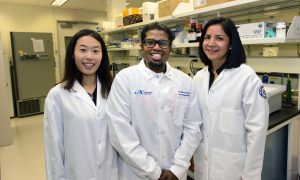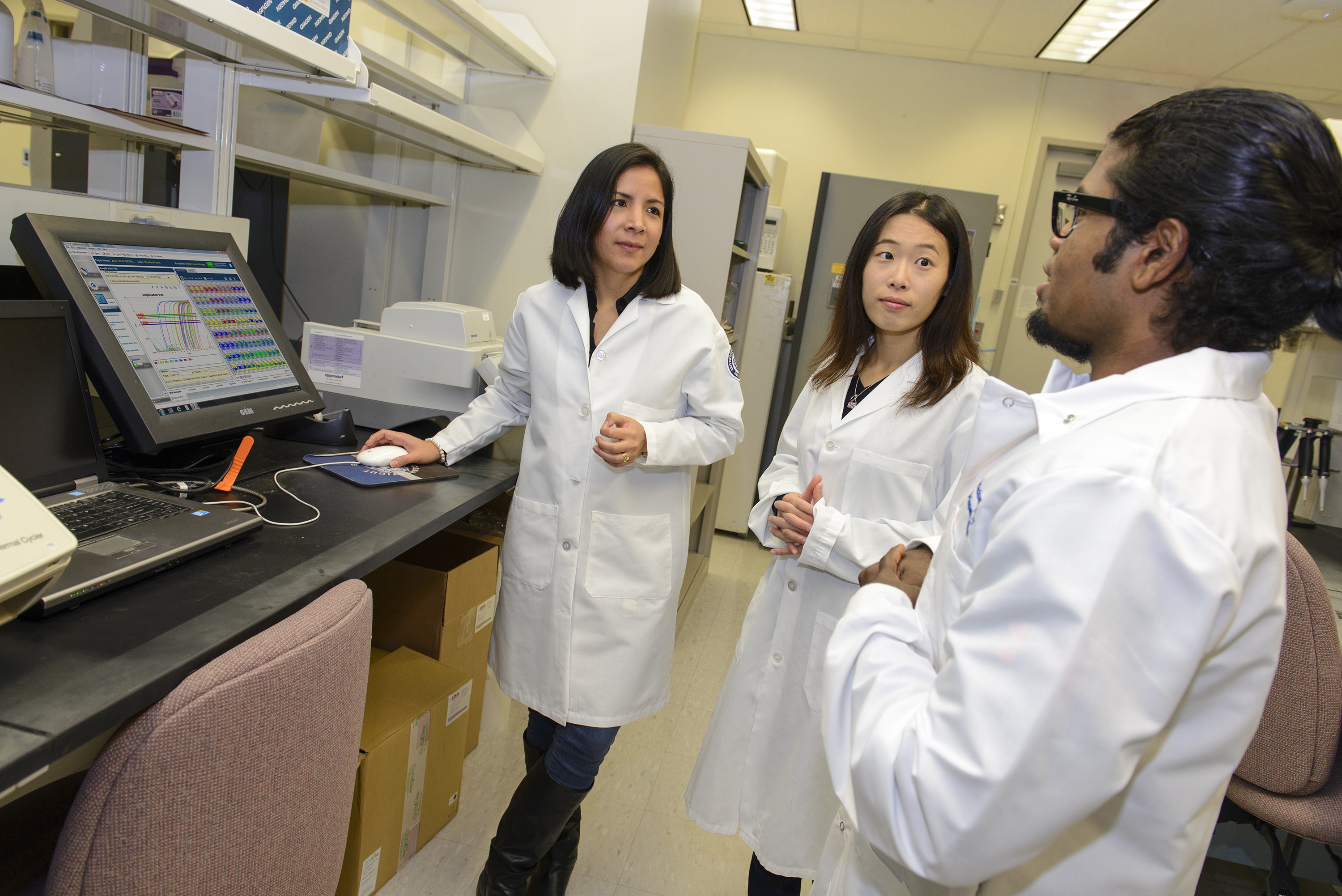Three UConn Graduate School students studying biomedical science at UConn Health trained in a two-week intensive course this summer at the National Institutes of Health (NIH) Clinical Center in Bethesda.
The trio was in a class of only 30 Ph.D. students selected for the special course that introduced them to the role a graduate students can play in clinical and translational research, how basic science and clinical observations lead to translational research, and increased their awareness and access to role models, research resources and potential career opportunities at the NIH.

“The NIH has profoundly changed my view on why I wanted to become a scientist: to help people,” said Dinesh Babu Uthaya Kumar, who participated along with UConn’s Denisse Tafur and Huakang Huang.
“Not every second-year biomedical graduate student gets a chance to see how their basic laboratory research could be translated in order to save lives. I’m very grateful to the NIH for giving me the once in a lifetime opportunity to participate,” said Kumar, whose research advisor is Adam Williams, Ph.D., assistant professor at The Jackson Laboratory for Genomic Medicine.
Among the coursework was the concept of ‘bench to bedside’ – all of the steps that take a scientific discovery through clinical trials before being applied into medical practice in order to improve or save lives, according to Tafur, whose research advisor is Bruce White, Ph.D., a professor of cell biology and co-director of histopathology at UConn Health.
During the NIH training the students also learned more about research study design, study development and implementation, the scientific and ethical review of research, medical product development and the regulatory process. Their travel was made possible in part by an award from the UConn Health Auxiliary.
“What impressed me the most were the opportunities to meet with NIH investigators in person,” said Huang whose research advisor is Daniel W. Rosenberg, Ph.D., the HealthNet, Inc. Chair in Cancer Biology, professor of medicine and investigator for the Center for Molecular Medicine at UConn Health.
“It provided great inspiration for me to choose a career in clinical research and will continue as my motivation in the future,” Huang added.



